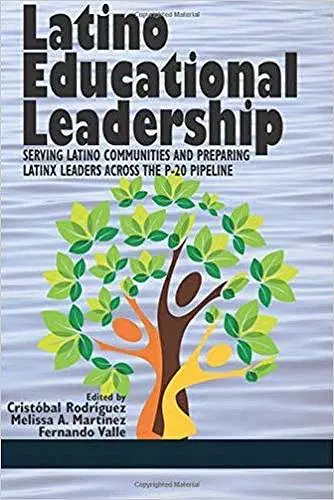Latino Educational Leadership
Serving Latino Communities and Preparing Latinx Leaders Across the P-20 Pipeline
Cristóbal Rodríguez editor Melissa A Martinez editor Fernando Valle editor
Format:Hardback
Publisher:Information Age Publishing
Published:5th Sep '18
Currently unavailable, and unfortunately no date known when it will be back

Latino Educational Leadership acknowledges the unique preparation and support for Latinx educational leaders and Latino communities that is needed throughout the education and policy pipeline. While leadership in communities does exist for educational purposes, this effort focuses on the institutional aspect of Latino educational leadership across K-12 schools and university settings. The purpose of this edited book is to enhance a greater collaborative focus on Latino Educational Leadership throughout the pipeline by inviting both established and up-and-coming scholars who can speak to various aspects related to developing all leaders, as well as, the preparation of Latinx educational leaders, for serving Latino communities.
The impetus for this edited book focus on Latino Educational Leadership primarily stems from the changing demographics of our country. Much like the growing Latino population nationwide, the Latinx student enrollment in public elementary and secondary schools is at an all-time high and estimated to continue to grow; Latinxs comprised 26.8% of all students as of fall 2017, with this population estimated to increase to 28.9% by 2026 (Snyder, de Brey, & Dillow, 2018). In fact, as of 2014 Latinx students comprised more than half of all K-12 public school enrollment in New Mexico, California, and Texas (Snyder, de Bley, & Dillow, 2017). Given this enrollment growth, there has been an increasing urgency in the field of educational leadership to prepare and support all leaders, but also uniquely Latinx educational leaders that have rich cultural and linguistic connections to communities, who can understand and meet the needs of Latinx students and families (Murakami, Valle, & Méndez-Morse, 2013; Sanchez, Thornton, & Usinger, 2009).
Additionally, the number of degrees awarded to Latinxs at all levels increased dramatically between 2003-04 and 2013-14: bachelor’s degrees more than doubled from 94,644 to 202,412, master’s degrees conferred rose from 29,806 to 55,965, and doctor’s degrees went from 5,795 to 10,665 (Musu-Gillette, et al., 2017). However, when compared to all other racial/ethnic groups, Latinxs were awarded only 11% of all bachelor’s degrees, 9% of all master’s degrees, and 7% of all doctor’s degrees in 2013-14. Thus, an urgency remains to address continued concerns related to Latino access, persistence and matriculation in higher education (Pérez Huber, Huidor, Malagón, Sánchez, & Solórzano, 2006). In particular, there has been an increasing...
ISBN: 9781641133562
Dimensions: unknown
Weight: unknown
234 pages